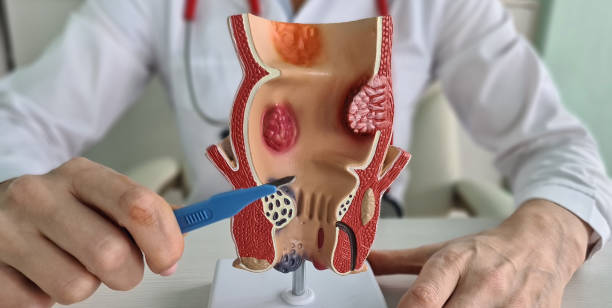


Private anal fistula surgery treats painful fistulas with privacy and expert care, helping patients heal safely, comfortably, and with faster recovery.
Anal fistula is a small tunnel that forms between the inside of the anus and the skin near it. It usually happens after an infection or an abscess does not heal properly. Anal fistulas can cause pain, swelling, and sometimes pus or blood discharge. One of the best ways to treat this condition is through private anal fistula surgery. This surgery provides comfort, privacy, and specialized care for people facing this sensitive problem.
An anal fistula often starts with a blocked gland inside the anus that becomes infected. If the infection is not treated, pus collects and forms an abscess. Eventually, the abscess can break and form a tunnel connecting the gland to the skin. This tunnel is called a fistula.
People with an anal fistula may feel pain when sitting, notice swelling, or see pus or blood. Some may even have fever when the infection is worse.
Private anal fistula surgery gives patients a more personal treatment experience. Many people feel shy or uncomfortable discussing this problem in public hospitals. Private surgery allows privacy, shorter waiting times, and often newer tehnology for treatment.
Doctors in private centers usually spend more time explaining the procedure and answering questions. This care can make patients feel safer and less stressed during the surgery.
There are several methods for surgery, and the choice depends on the type and location of the fistula. Some common types include:
Fistulotomy – The fistula is cut open to allow it to heal naturally.
Seton Placement – A thread called a seton is placed in the fistula to help it heal slowly.
LIFT Procedure – Ligation of the Intersphincteric Fistula Tract seals the fistula from inside.
Advancement Flap Procedure – Tissue is moved to cover the fistula opening after cleaning.
Each surgery has benefits and risks, and the doctor will recommend the best one after proper examination and tests.
Private anal fistula surgery is usually done under anesthesia, so the patient feels no pain. The procedure can take 30 minutes to an hour depending on the fistula’s complexity.
Most patients can go home the same day. Pain and discomfort are normal for a few days, but doctors give medicines to reduce them. Patients are advised to keep the area clean and dry.
Recovery varies. Simple fistulas may heal in a few weeks, while complicated ones take longer. Patients can help healing by:
Taking warm baths (sitz baths)
Eating high-fiber foods to avoid constipation
Drinking enough water
Avoiding heavy lifting
Follow-up visits are important to make sure the fistula is healing properly.
Like any surgery, anal fistula surgery has risks. These include infection, bleeding, recurrence of fistula, or in rare cases, problems with bowel control.
Private surgery centers often have skilled surgeons and better infection control to reduce risks. Patients usually experience fewer complications when treated in private facilities.
Private surgery may cost more than public hospitals, but many patients prefer it for comfort and faster care. Insurance sometimes covers part of the cost. Some clinics also offer payment plans to make surgery easier to afford.
Private anal fistula surgery is a safe and effective way to treat anal fistulas while providing privacy and personalized care. Understanding the types of surgery, recovery steps, and risks helps patients feel more confident. Consulting a trusted clinic like jalsurgery can be the first step toward proper treatment.
No one should suffer silently from an anal fistula. With the right care, it is possible to heal and return to normal life comfortably.
